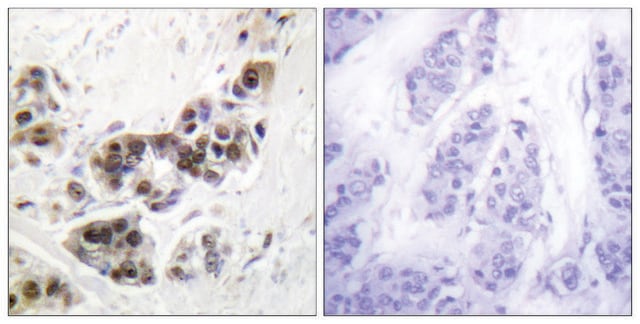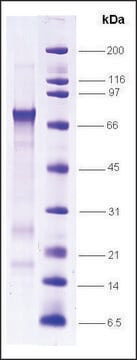P6374
p53 human
recombinant, expressed in baculovirus infected Sf21 cells
About This Item
Javasolt termékek
biológiai forrás
human
Minőségi szint
rekombináns
expressed in baculovirus infected Sf21 cells
Teszt
≥90% (SDS-PAGE)
Forma
aqueous solution
technika/technikák
dot blot: suitable
UniProt elérési szám
alkalmazás(ok)
genomic analysis
kiszállítva
dry ice
tárolási hőmérséklet
−70°C
Géninformáció
human ... TP53(7157)
Looking for similar products? Látogasson el ide Útmutató a termékösszehasonlításhoz
Általános leírás
Alkalmazás
Biokémiai/fiziológiai hatások
Fizikai tulajdonságok
Fizikai forma
Tárolási osztály kódja
10 - Combustible liquids
WGK
WGK 3
Lobbanási pont (F)
Not applicable
Lobbanási pont (C)
Not applicable
Válasszon a legfrissebb verziók közül:
Analitikai tanúsítványok (COA)
Nem találja a megfelelő verziót?
Ha egy adott verzióra van szüksége, a tétel- vagy cikkszám alapján rákereshet egy adott tanúsítványra.
Már rendelkezik ezzel a termékkel?
Az Ön által nemrégiben megvásárolt termékekre vonatkozó dokumentumokat a Dokumentumtárban találja.
Tudóscsoportunk valamennyi kutatási területen rendelkezik tapasztalattal, beleértve az élettudományt, az anyagtudományt, a kémiai szintézist, a kromatográfiát, az analitikát és még sok más területet.
Lépjen kapcsolatba a szaktanácsadással








